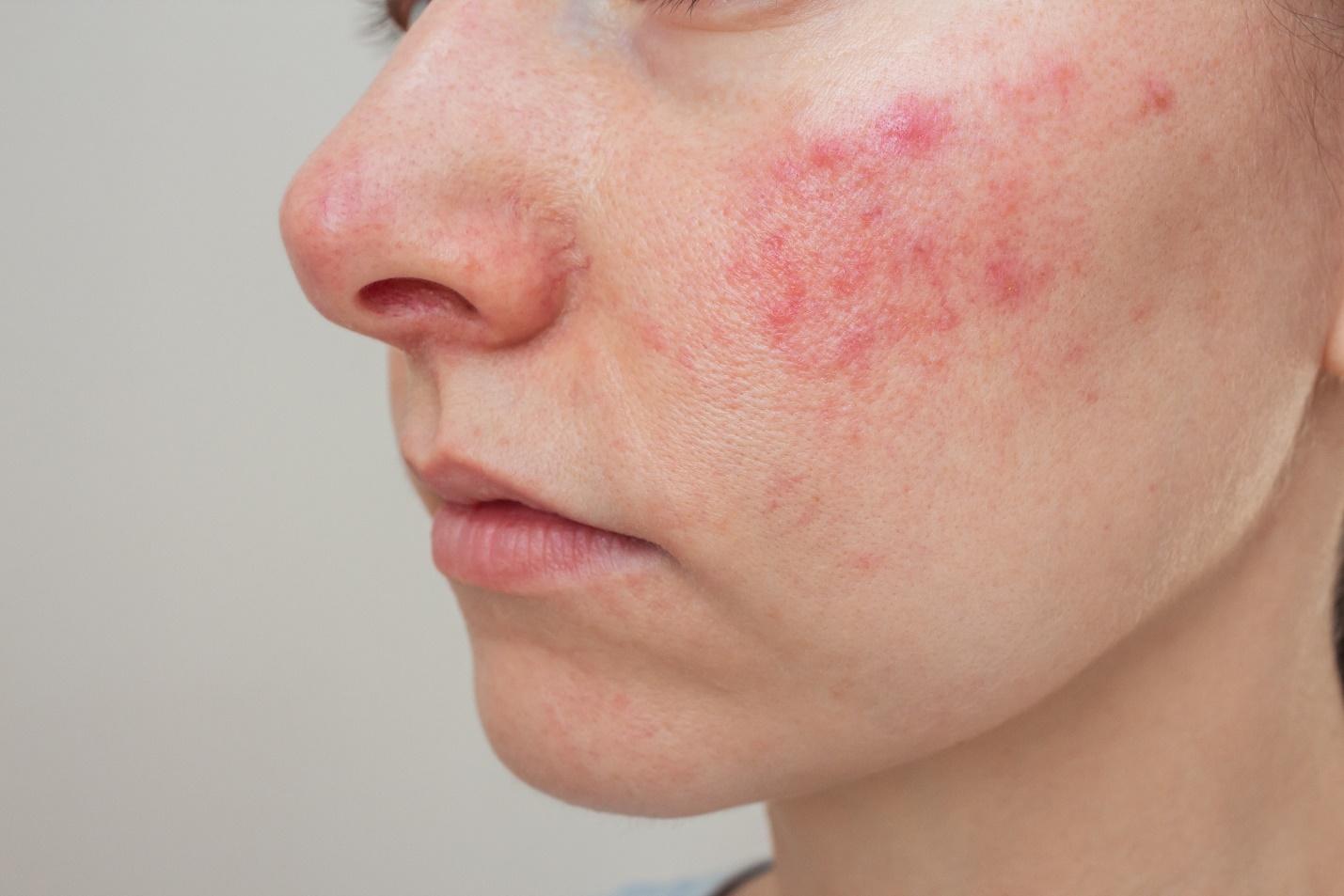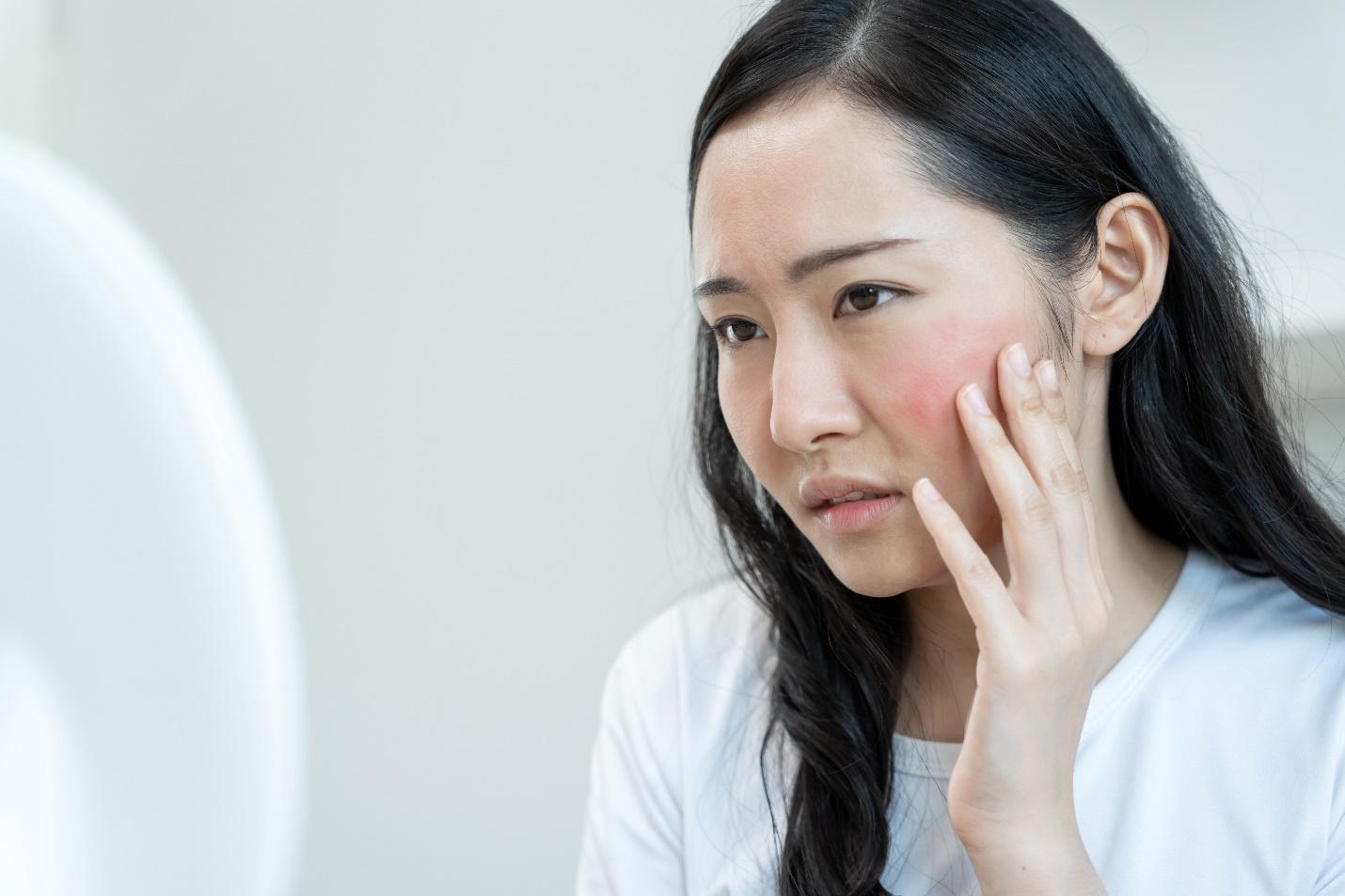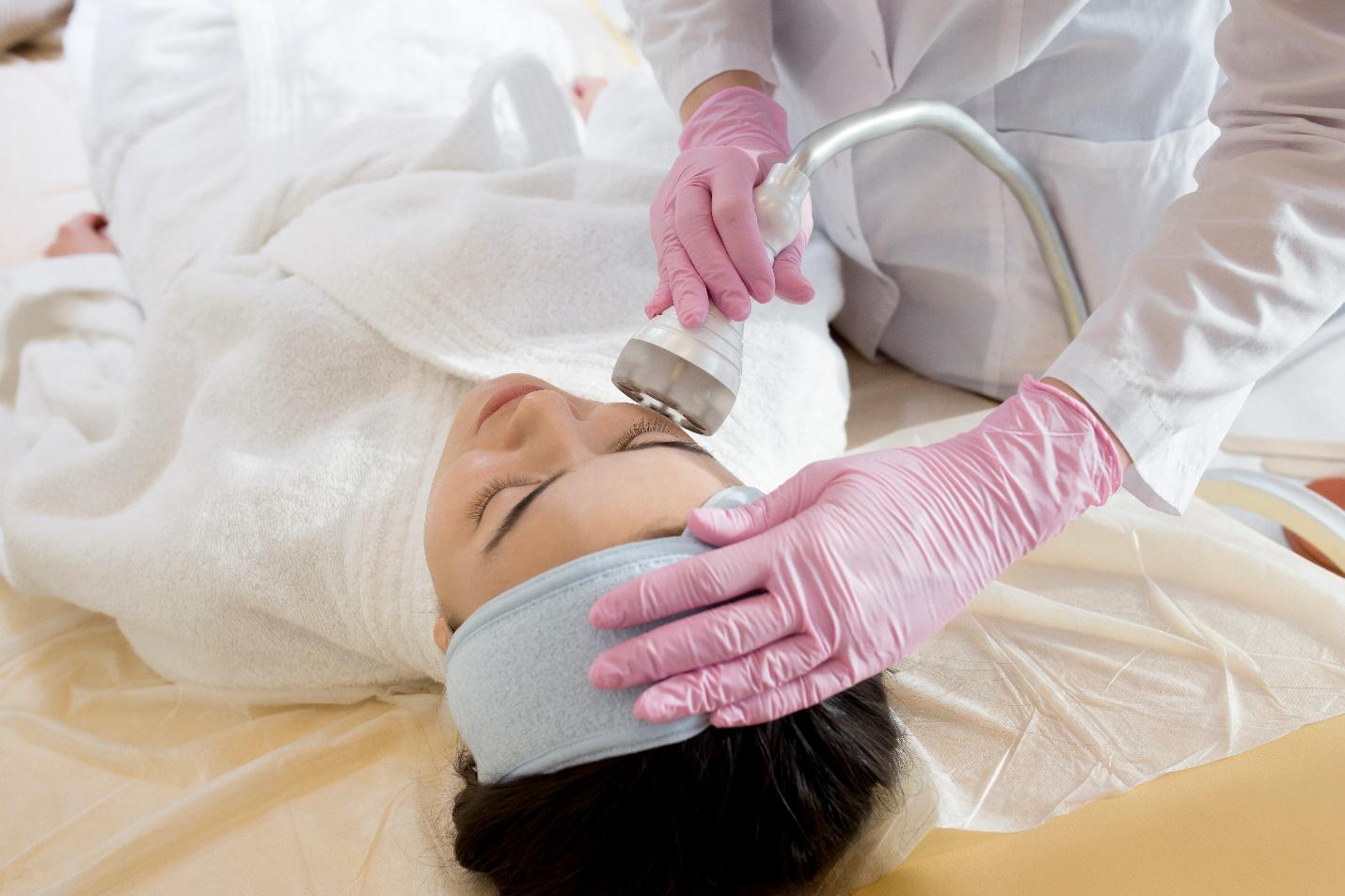
Rosacea is a long-term skin condition that causes persistent redness, visible blood vessels, and sometimes acne-like bumps on the face. Although it is often mistaken for common skin sensitivities or acne, rosacea is a distinct dermatological concern that requires proper management.
While the exact number of people affected in Singapore is unknown, rosacea is more prevalent among adults aged 30 to 50 years old, particularly those with fair skin. If the condition is left untreated, symptoms can worsen over time, leading to increased discomfort, and self-consciousness.

Rosacea is an inflammatory skin disorder that primarily affects the central face, including the cheeks, nose, forehead, and chin. It often begins with episodes of flushing, where the skin temporarily turns red before returning to normal.
Over time, this redness can become persistent, and small, dilated blood vessels, known as telangiectasia, may appear. Some individuals also develop bumps or pimples that resemble acne, while others experience eye irritation, known as ocular rosacea.
Although rosacea is not contagious, it can significantly impact daily life by causing discomfort, and emotional distress.
Rosacea presents in different forms, each with unique characteristics, such as:
The exact cause of rosacea is not fully understood, but it is believed to result from a combination of genetic, environmental, and immune system factors. Some of the key triggers, and risk factors include:

While symptoms vary from person to person, some of the most common signs include:
Although rosacea primarily affects the face, it can affect different parts of the face, and body, including:
Diagnosing rosacea involves a thorough assessment of your skin, symptoms, and medical history. At Livingstone Dermatology a thorough assessment of your skin condition will be made, and you may expect the following:

When it comes to the effective management of Rosacea, the treatment plan generally focuses on reducing symptoms, preventing flare-ups, and improving skin health. While there is no cure, personalised treatments at Livingstone Dermatology can help control the condition and minimise discomfort.
In conclusion, rosacea is a long-term skin condition that causes redness, visible blood vessels, and sensitivity, often triggered by environmental, and lifestyle factors. Although it is not contagious, it can worsen over time if left untreated, leading to persistent discomfort and, in some cases, complications such as thickened skin or eye irritation.
Early intervention is key to keeping rosacea under control. Our skilled, and experienced dermatologist can diagnose your specific type of rosacea, and create a personalised treatment plan to manage symptoms, and prevent flare-ups. If you are experiencing ongoing redness, sensitivity or unexplained skin changes, do not wait for them to intensify. Schedule a consultation with us today, and take the first step towards clearer, healthier skin.
Is rosacea painful?
Is rosacea an autoimmune disease?
Rosacea is not classified as an autoimmune disease, but it does involve an abnormal immune response. The condition is thought to be linked to an overactive inflammatory reaction in the skin, as well as increased sensitivity to environmental factors, and microorganisms like Demodex mites.
While the exact cause is still being researched, rosacea shares some similarities with autoimmune, and inflammatory conditions in terms of immune system involvement.
How can I differentiate a rosacea rash from a lupus rash?
Both rosacea, and lupus can cause facial redness, but there are key differences:
Can rosacea be cured permanently?
Currently, there is no permanent cure for rosacea, but the condition can be effectively managed with proper treatment, and lifestyle adjustments. Many people with rosacea see significant improvements by following a personalised treatment plan that includes topical or oral medications, laser therapy, and trigger avoidance. Early diagnosis, and treatment can help prevent symptoms from worsening over time.
Can rosacea be prevented?
Since rosacea has a genetic and environmental component, it cannot always be entirely prevented. However, flare-ups can be minimised by identifying, and avoiding triggers such as excessive sun exposure, alcohol, spicy foods, and stress. Consistently using gentle skincare products, wearing daily sun protection, and following a dermatologist-recommended treatment plan can help keep rosacea symptoms under control.
If I have rosacea, does that mean I cannot wear makeup?
You can still wear makeup if you have rosacea, but it is important to choose products that are gentle, non-comedogenic, and free from irritating ingredients such as alcohol, fragrance, and harsh preservatives.
Additionally, look for mineral-based foundations, green-tinted primers to neutralise redness, and hydrating formulas that support skin health. On top of that, always remove makeup with a gentle, non-stripping cleanser to avoid aggravating your skin.
If you are unsure of the type of makeup or skincare products you should use, our dermatologist can recommend suitable makeup, and skincare options tailored to your skin’s needs.
Whether you’re dealing with a specific skin concern or seeking to enhance your natural beauty, Livingstone Dermatology is here to guide you on your journey to healthy, radiant skin.
Schedule an appointment today and experience the Livingstone standard of care in a welcoming, professional environment.